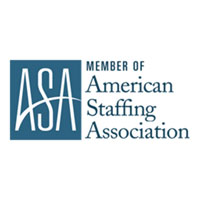Travel Staffing National Licensing System, Endorsement Licensing, Walk-Through Process
Travel nursing is a nursing assignment concept that developed in response to the nursing shortage. This industry supplies nurses who travel to work in temporary nursing positions, mostly in hospitals. Reasons cited for pursuing travel nursing opportunities include higher pay, professional growth and development, and personal adventure. Travelers typically select from one or more Travel Medical Staffing Companies to act as intermediaries between the traveler and hospitals or other potential employers, just a minority of travel nurses sign up directly with hospitals as contract level employees. Agencies may submit applications for numerous positions concurrently on behalf of a traveler. In a recent survey, more than 6% of nurses participating, note, they would consider travelling as part of their nursing duties rather than stay in one location. Millennials are twice as likely as their older counterparts to travel.
The Travel Nursing Landscape has changed tremendously over the past ten years. As hospitals and medical services change to a more streamlined approach, the need for trained professionals who can move from one location to another, based on need, has risen by almost eighteen percent. Continuing shortages of nurses and the increasing sophistication of the healthcare industry have intensified the competition for quality healthcare professionals. This trend has created an extremely competitive nursing job market, often resulting in national employment searches. The growth in travel nursing also means that nurses are increasingly drawn to work across state lines. However, hospitals will often define travel nurse positions for nurses who live at least 50-70 miles from their facility. Because so many travelers are working across state lines, there is a need for an improvement of the National Licensing System for Nurses.
According to the AMN Healthcare 2017 RN Survey, nearly 68% of nurses said the current national licensing system for nurses would benefit from more states joining the Interstate Licensing Compact. Created by the National Council of State Boards of Nursing in the year 2000, the nurse licensure compact gives eligible registered nurses the ability to practice in other nursing compact states without having to secure any additional licenses. As of January 2018, only twenty-nine states have joined the Compact, but the Nurse Licensure Compact has also transitioned to an Enhanced Nurse Licensure Compact, allowing nurses in most states to work more expediently in other states. Specific information regarding which states participate in the Compact and the specific state licensure requirements and processes, can be found on the NLC/ENLC website at https://www.ncsbn.org/nurse-licensure-compact.htm.
Another option if a nurse does not live in a Compact State is obtaining an Endorsement License. Endorsement licenses are temporary, meaning that they can apply for this if they are taking a temporary assignment within specific states and need to have a valid license within that state, or are planning to move there and take a permanent job. A nurse licensed in one jurisdiction can usually be licensed in a second jurisdiction through a process called endorsement. The second state bases the licensure decision upon verification of licensure in the original state where the nurse was licensed and upon meeting all additional licensure requirements for that state. Some states will accept verification from a current state of licensure. The specific state’s endorsement and examination processes can be found https://www.nursinglicensure.org/articles/rn-licensing.html.
A third option for easy licensing is the nursing ‘walk-through’ process. Walk-through states allow a nurse to be issued a temporary state nursing license within a one to twenty-four-hour time period. This temporary travel nursing license is used to practice nursing while awaiting permanent licensure to be processed within that state. These temporary licenses obtained in walk-through states are usually valid for thirty days to six months depending upon the state issuing the license. A list of participating states can be found at https://www.fastaff.com/traveling-nurse-resources/obtaining-your-travel-nursing-license.



